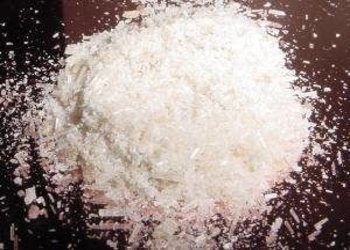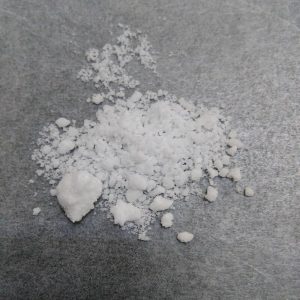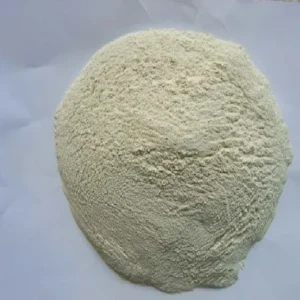3-MeO-PCP – Research Chemical Overview
3-MeO-PCP (3-Methoxyphencyclidine) is a dissociative arylcyclohexylamine belonging to the same chemical family as PCP (Phencyclidine) and Ketamine. Known for its potent psychoactive and anesthetic properties, it has drawn significant interest from the scientific and research communities for its unique pharmacological profile, particularly its NMDA receptor antagonism and effects on consciousness and perception. As a research chemical, 3-MeO-PCP (3-Methoxyphencyclidine) is not intended for human consumption but is used in laboratory settings for neuropharmacological and receptor-binding studies.
Chemical Information
-
Chemical Name: 3-Methoxyphencyclidine
-
Chemical Formula: C18H27NO
-
Molecular Weight: 273.42 g/mol
-
IUPAC Name: 1-[1-(3-Methoxyphenyl)cyclohexyl]piperidine
-
CAS Number: 2201-15-2
-
Synonyms: 3-MeO PCP, 3-MeO-1-Piperidinocyclohexylbenzene
Structurally, 3-MeO-PCP (3-Methoxyphencyclidine) features a methoxy group (-OCH₃) attached to the 3-position of the phenyl ring in the phencyclidine structure. This small modification is responsible for its distinct binding affinity and pharmacodynamic behavior, differentiating it from related compounds such as 4-MeO-PCP or standard PCP.
Pharmacological Profile of 3-MeO-PCP (3-Methoxyphencyclidine)
3-MeO-PCP (3-Methoxyphencyclidine) functions primarily as an NMDA receptor antagonist, meaning it inhibits the action of the N-methyl-D-aspartate receptor — a key receptor involved in synaptic plasticity, memory, and learning. By blocking NMDA activity, 3-MeO-PCP can produce dissociative effects, altering the perception of the self and environment.
In research contexts, studies involving NMDA antagonists like 3-MeO-PCP contribute to understanding neurological disorders such as depression, schizophrenia, and neurodegenerative diseases. These compounds also provide insight into how glutamatergic neurotransmission affects human consciousness and sensory integration.
Distinguishing Features of 3-MeO-PCP (3-Methoxyphencyclidine)
Compared to other dissociative agents in the arylcyclohexylamine class, 3-MeO-PCP is noted for the following unique characteristics:
-
Higher potency: It is typically more potent than ketamine but less potent than PCP, making it a mid-range compound in terms of receptor affinity.
-
Enhanced stimulation: Many researchers report that 3-MeO-PCP shows mild stimulant properties compared to more sedative analogs.
-
Clear-headed dissociation: The methoxy substitution appears to modify the compound’s subjective dissociative profile, producing a more lucid or analytical detachment in controlled experimental conditions.
-
Prolonged duration: Laboratory analysis indicates that 3-MeO-PCP has an extended half-life, which may make it valuable for long-term receptor activity studies.
These properties have made 3-MeO-PCP an important molecule in neurochemical and behavioral research, especially in studying NMDA receptor antagonism and its downstream effects.
Applications in Research for 3-MeO-PCP (3-Methoxyphencyclidine)
3-MeO-PCP (3-Methoxyphencyclidine)i s used exclusively for scientific and forensic purposes. Its research applications include:
-
Receptor binding studies to measure affinity and selectivity for NMDA and sigma receptors.
-
Comparative pharmacology involving PCP analogs to analyze structure–activity relationships (SAR).
-
Behavioral neuroscience experiments to model dissociative states or simulate psychotomimetic effects.
-
Analytical chemistry testing for developing detection methods in biological and forensic samples.
These uses contribute valuable data to the understanding of neuropsychiatric pharmacology and help scientists develop safer compounds with therapeutic potential.
Physical and Chemical Properties of 3-MeO-PCP (3-Methoxyphencyclidine)
3-MeO-PCP (3-Methoxyphencyclidine) is typically supplied in powder or crystalline form, depending on synthesis and purification methods. It is soluble in organic solvents such as ethanol, acetone, or chloroform, and may be partially soluble in water. The compound should always be stored in a cool, dry environment, protected from light and moisture to preserve stability.
In analytical laboratories, researchers may employ chromatographic and spectrometric methods (HPLC, LC-MS, GC-MS, NMR) to confirm purity and structural integrity. Maintaining high analytical standards is critical for reproducible and valid research outcomes.
Safety and Handling Information
3-MeO-PCP (3-Methoxyphencyclidine) is a potent dissociative compound that should be handled only by qualified professionals in controlled laboratory environments. It must never be ingested, inhaled, or used in vivo outside authorized research. Appropriate protective gear such as gloves, lab coats, and eye protection should always be worn.
Researchers must follow local regulations and safety protocols governing the use, storage, and disposal of research chemicals. This includes proper documentation, secure storage away from unauthorized access, and adherence to chemical safety standards.
Legal Status
The legal classification of 3-MeO-PCP varies by country. In several jurisdictions, it may be controlled under analog or psychoactive substance laws. Researchers are responsible for ensuring compliance with local and national regulations before purchase or use.
In regions where 3-MeO-PCP is unscheduled, it is typically sold for research and analytical purposes only, explicitly not for human consumption or veterinary use.
Key Takeaways
-
3-MeO-PCP (3-Methoxyphencyclidine) is a dissociative NMDA antagonist structurally related to PCP and ketamine.
-
Used in scientific research, it helps explore NMDA receptor functions and neurobehavioral mechanisms.
-
Features strong potency, distinct dissociative effects, and long duration compared to other analogs.
-
Must be handled with care, under proper laboratory conditions, and in full compliance with regulations.
-
Not intended for human or animal use.





Reviews
There are no reviews yet.